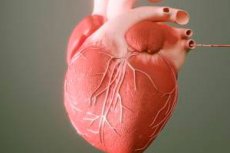New publications
Multi-omic assays reveal immune system response to heart attack
Last reviewed: 02.07.2025

All iLive content is medically reviewed or fact checked to ensure as much factual accuracy as possible.
We have strict sourcing guidelines and only link to reputable media sites, academic research institutions and, whenever possible, medically peer reviewed studies. Note that the numbers in parentheses ([1], [2], etc.) are clickable links to these studies.
If you feel that any of our content is inaccurate, out-of-date, or otherwise questionable, please select it and press Ctrl + Enter.

Improving patient outcomes after myocardial infarction is one of the major goals of cardiology. This includes a comprehensive understanding of pathophysiology and early identification of patients at high risk of poor outcome.
Researchers from LMU Hospital, Helmholtz Munich and other institutions used high-tech biomedical and bioinformatics methods to comprehensively map the immune response to myocardial infarction in humans and identify signatures that correlate with the clinical course of the disease.
The results are published in the journal Nature Medicine.
In Germany alone, around 300,000 people suffer a heart attack each year. Treatment for patients has improved significantly in recent decades. However, many of those affected develop heart failure after the event because the heart muscle does not regenerate.
According to animal studies, the inflammatory response plays an important role after a heart attack and has a decisive influence on the restoration of cardiac muscle function.
"An inappropriate or excessive immune response can compromise the recovery of cardiac function," says Dr. Kami Pekayvaz, lead author of the new study and a clinical scientist at the Department of Medicine I, LMU Hospital, LMU Munich.
A team led by him, including Victoria Knottenberg, PD Dr. Leo Nicolai and Prof. Konstantin Stark from the Department of Medicine I at LMU Hospital and Corinna Losert and Dr. Matthias Heinig from Helmholtz Munich, analyzed for the first time how the immune system responds to myocardial infarction in humans.
The researchers studied blood samples from heart attack patients treated at LMU Hospital and showed different clinical outcomes.
Atlas of immune responses
Immune cells in the blood were analyzed individually for their RNA expression. RNA is produced when cells translate the information from their genes into proteins – so-called transcriptome analysis can reveal the current state and characteristics of a cell.
In addition, blood plasma was examined for various substances using protein assays, which provide detailed information about inflammatory and other processes. These assays are among the most modern methods, the so-called multi-omics methods.
A specific bioinformatics technique (MOFA, for multi-omics data factor analysis) recognized common patterns in the mass of obtained data.
"This method is ideal for identifying and summarizing many smaller effects that are coordinated in one direction," says Dr. Matthias Heinig, head of the bioinformatics working group at Helmholtz Munich. This has allowed the creation of an atlas of immune responses after myocardial infarction.
"These patterns can explain the differences between the clinical and time courses of patients," says Professor Konstantin Stark, senior consultant in cardiology at LMU Hospital. This means that certain "immune signatures" are associated with better recovery of cardiac function, others with worse.
This atlas of the immune response to myocardial infarction has great significance for further basic research in the field of cardiovascular diseases and potentially indicates that multiomics analyses of blood samples can be used to predict the clinical course of a patient’s infarction. However, the concept of MOFA-based diagnostics in cardiovascular diseases must be tested in further studies – and this is what the Munich researchers plan to do in the coming years.
